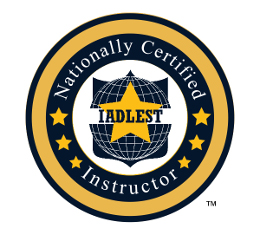John B. Edwards
Tuesday, January 29, 2013
After the 2008 recession, we saw budgets cut and programs eliminated throughout our country. Many of the dollars taken away had an adverse impact upon law enforcement and police training. While mandatory in-service requirements remained, necessary training on timely issues was terminated in most jurisdictions. Grants and funding had been slashed, with many free tuition opportunities eliminated. The atmosphere created by this environment and acerbated by a lack of proactive and preventative training threatens every officer, their leadership and agency that has no plan and takes no action to remain current. We need to insulate ourselves from the everyday liabilities from wearing the badge, enforcing the law and securing order.
What can officers, leaders and agencies do to enhance their performance while insulating themselves from liability? First and foremost, you must become proactive and prepare to navigate the landscape of the 21st century, bypass the barriers, traps, minefields, obstacles and prevent the pitfalls that lay in the path to progress. In addition, if you follow these seven steps below, you’ll build credibility, develop a professional reputation, enhance your performance and insulate yourself from liability.
- Do right at all times. Follow the law, your agency policy, procedures and training. “Stay above the red line.”
- Never be held hostage to your emotions. Never let your anger influence your conduct and behavior. Don’t let yourself be drawn into situations where your personal feelings conflict with your professional obligations, responsibilities or duties. Never make poor or marginal cases based upon people being disrespectful through their behavior or speech. Insure that disorderly conduct, obstructions and other charges based upon bad behavior and conduct are objective and clearly violate elements of a particular crime. Don’t violate the First Amendment. Maintain a professional attitude at all times, free from anger and motivated to placate situations, rather than aggravate and intimidate. Treat everybody with dignity and fairness and be consistent.
- Learn to think critically, be proactive and prepare. Always be objective, skeptical and specific in your observations and when gathering facts. Make careful judgments based upon evidence and context within a practical and pragmatic process to support and justify your conclusions. Always be prepared and anticipate the unexpected consequences of any event, action or decision. Case preparation starts before you ever turn on your blue light.
- Develop excellent people skills. Always be professional and courteous toward people and develop a positive attitude and interpersonal skills. Be conscientious and empathetic when possible, and use tactful non-verbal and verbal communications. Focus on de-escalation and minimizing events through careful choices of words and empathetic actions. Always remain alert and aware while keeping yourself in a secure position of tactical safety.
- Stay current in your craft. Be proactive in research regarding the latest and most current police issues and legislations. Read professional law enforcement publications; use the credible police organization websites regarding professional and proven evidence-based, best practices; and stay abreast of the latest court rulings regarding criminal procedure, search and seizure, and civil liability.
- Seek advice, guidance and council when you’re unsure. Always consult with your supervisors when you’re unsure or uneasy regarding any issue. You should also regularly talk and consult your prosecutors regarding cases and new court rulings. Your agencies legal component should never be surprised because supervisors are unaware of your actions during a critical event.
- Document well.Reports are one of the most crucial and critical components to your job. They provide the necessary means to prosecute successfully and promote important information and intelligence resources. Reports also protect you and your agency by serving as the most important mechanism to preserve integrity, credibility and reliability of your accounts and actions. They must be timely, thorough, accurate and complete. Insure you document all events, actions and statements in specific detail, and support your conclusions with objective facts and circumstances.Remember: A well-written report is worth its weight in gold when an issue or complaint surfaces and the report contains accurate documentation of facts and circumstances that explain and substantiate the officers conduct, behavior and actions.
Conclusion
This fundamental advice is an investment that will pay huge dividends toward your performance, character, reputation and career.
John Edwards retired in 2008 as a special agent in charge with the Georgia Bureau of Investigation after 30 years of service. He spent 4 years as the chief deputy sheriff of Evans County Georgia and currently serves on the executive board of the Peace Officers Association of Georgia.
Source URL: http://www.lawofficer.com/article/training/seven-tips-toward-professional
Republished with permission of PennWell Publishing


 Lastest Tweets
Lastest Tweets